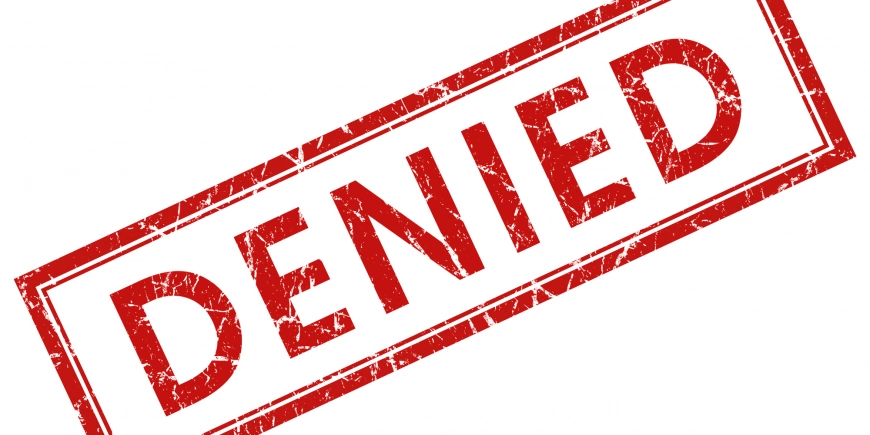Denied by Insurance?

Has your insurance company ever denied any of your claims? Have you received medical bills stating that you are responsible for the full cost of services rendered? Have you ever been told after receiving medical care, imaging, or lab work that it is not covered because the services were not necessary? It's a horrible position to be in but the unfortunate truth is that it happens far too often.
Denial Isn't Always The End of The Story
Most of us have expeerience with rejected medical or insurance claims. Many times, we don't even know why or how a claim was rejected, but we pay anyway because we got a bill. The good news is you do not always have to pay! After finding out why your claim was rejected, you always have a chance to appeal the rejection in hopes that the insurance company overturns their decision. This may result in them paying the claim so that you are not stuck with the bill. When our clients come to us with a rejected claim, we evaluate the claim and explanation of benefits. Once we determine the denial reason, we review all of the pertinent medical records to find a medical necessity for the service in question. We start by understanding the rejection reason, and finding evidence to support why the rejection should be overturned.
Understanding the Insurance Company's Perspective:
Insurance companies only know what information they receive from the billing provider. There may be (and often is) missing information. For instance, let’s say you were having chest pain and went into an urgent care center. The urgent care does a workup including a physical exam, labs, chest x-ray, and an EKG. They end up diagnosing you with the common cold. The urgent care submits a claim to your insurance company reflecting which tests were done and what the final diagnosis was.
You do not have to go it alone. Patient advocates are experienced with appeals and knows the necessary information required when submitting an appeal.
Weeks later, you receive notice from your insurance company stating that you are responsible for the EKG because it was not medically necessary. Of course, this was necessary, due to the chest pain you were experiencing. But to the insurance company, why would you need an EKG completed if you just had a common cold? So what can you do? You may simply file an appeal to have the insurance company reverse the denial and pay for the services in full. We make sure that the insurance companies have all of the necessary supporting documentation to explain the need for services so that tests like this can be paid by the insurance!
Real Life Client Examples:
Client A (Tom): Tom had to have an emergency surgery while traveling out of state. His insurance company denied the charges for the surgery because the surgeon and facility were not contracted with them. Tom hired a private patient advocate to gather all of the proper supporting documentation explaining why the surgery had to be done then and there. The insurance overturned the rejection and the claim was paid in full!
We make sure that the insurance companies have all of the necessary supporting documentation to explain the need for services so that tests like this can be paid by the insurance!
Client B (Ashley): Ashley visited the emergency room for a sudden onset of neck pain. She was diagnosed with a severe condition but was also found to have cold symptoms while in the emergency room. The provider in the hospital only billed the codes for the cold symptoms, and the insurance company denied these charges stating they were not emergent. Ashley's private patient advocate wrote a letter to the insurance company explaining the severity of the neck pain and sent all of the medical records from the emergency room visit. This led to the insurance company reversing the denial and paying for the visit.
Appeals Are Difficult, But Not Impossible
Sounds simple, right? Sometimes it is, while others are a little more difficult. Every insurance company has a different appeal process, and it is important to understand what each company requires. Many of them are confusing and require extensive documentation. A private patient advocate can help with the process. You do not have to try it alone. A patient advocate is experienced with appeals and knows the necessary information required when submitting an appeal. Call a private patient advocate to assist you in filing an appeal with your insurance company.
